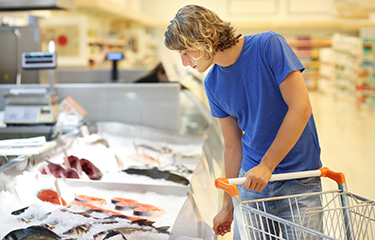New poll finds US voters want assurances merchants are selling legally-caught seafood

The Walton Family Foundation, in collaboration with Morning Consult, recently released a poll that found Americans would eat more seafood if they had greater knowledge of its health and environmental benefits.
The poll’s main focus was on Americans’ views on climate change, and what solutions towards its impacts respondents preferred. Overall, the poll discovered U.S. residents are unified on climate change and see urgent connections between it and the economy, agriculture, and health, according to Teresa Ish, the Oceans Initiative Lead and Senior Program Officer at the Walton Family Foundation.
The seafood-focused section included questions about awareness of human rights and labor issues in the seafood supply chain, of with roughly 60 percent of respondents said they knew little about. Despite knowing relatively little about the issue, 80 percent said they expect stores and restaurants to ensure the seafood they are selling are legally caught with no human rights or labor violations.
“People are saying to retailers ‘yes, we trust you, but we’re also counting on you,” Ish said.
The survey also found that consumers would be more likely to purchase seafood if they knew it had a lower carbon and water footprint than other animal proteins, and if it was caught sustainably with good labor practices. It also found 70 percent of consumers would be likely to change eating habits if they knew the health benefits of seafood.
Overall, the survey found a significant number of consumers would change consumption habits of seafood if fully informed of sustainable practices and health benefits.
“The lesson here is that retailers have a real responsibility to both consumers and the oceans,” Ish said. “What we've learned from similar sustainable products like coffee or chocolate is that consumers shop their values and reward good businesses with loyalty. Retailers who actively support sustainable seafood are doing the right thing for their customers, their bottom lines, and the planet.”
Photo courtesy of LADO/Shutterstock






Share